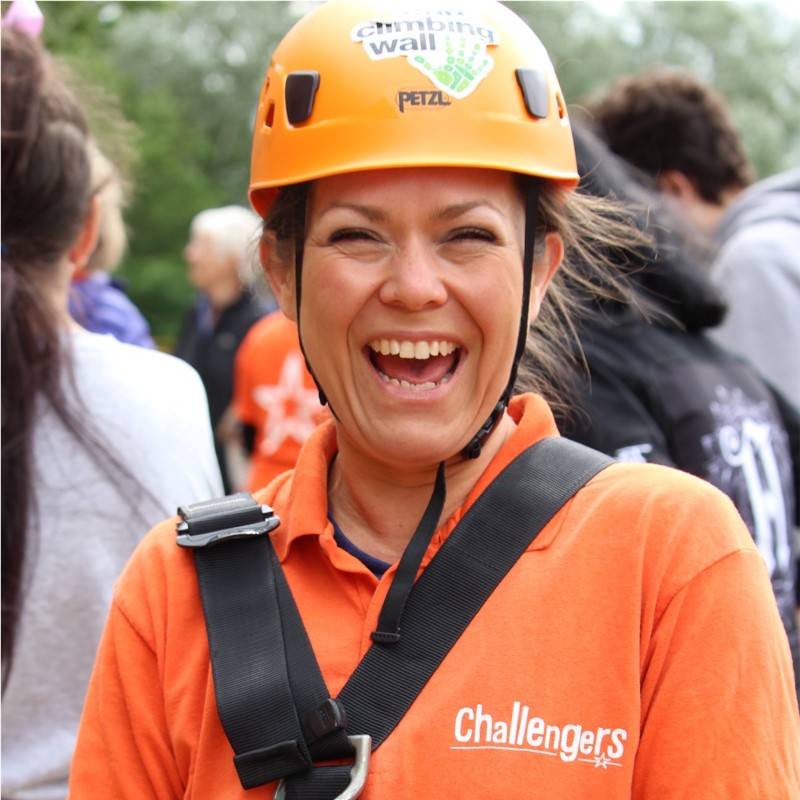This week we’re celebrating Mental Health Awareness Week (13th – 19th May 2024) which aims to remind people of the significance of mental wellbeing in our lives. Shining a light on this important topic, we interviewed our Community Liaison Manager Zoe Youkee, who is part of Challengers’ Wellbeing team and organises a number of initiatives to support the mental health of members of staff.
This year’s Mental Health Awareness Week theme is “Movement: moving more for your mental health”. How do we promote movement and physical activity within the workplace at Challengers?
Our Pre-school, Play and Youth worker roles work directly with the children and young people, which means they are usually very active. Our office-based staff on the other hand have more sedentary roles, so to encourage them to be more active we have suggested that they take some time during their lunch break to visit green spaces near the office such as Stoke Park or Farnham Park, or to get out for a walk somewhere nearby if they are working from home. It’s really important to get your body moving and take a break from screens.

What role does movement play in fostering positive mental health for our staff?
Regular physical activity provides immediate benefits such as promoting alertness, creativity, and problem-solving – things which help us to work effectively and feel good in our work. Studies have shown that aerobic exercise enhances the functionality of the hippocampus which is the area of the brain involved in memory, learning, and emotional regulation. This means that taking lunchtime walks is not only a great way to disconnect from work and connect with nature, but it could also help staff to retain more information, perform better, and support their overall mental wellbeing.
What changes can we make to prioritise movement as part of our day-to-day work?
One thing which we can easily implement is to be more flexible about how we conduct meetings, so for example, where it’s feasible having a ‘Walk and talk’ instead of a sit-down meeting. We’ve started to do this already, and have also participated in Guildford’s WalkFest. Standing desks are another great option to prevent sitting down for too long, so we have a desktop riser in The Hub (our Community Hub in Stoke Park) which can be used by our staff, parent carers, or members of the public who can book it as a co-working space.
What impact do movement-based initiatives have on the morale, engagement, and overall mental wellbeing of our staff?
We know that access to green spaces can have a significant impact on employees’ wellbeing, and that people who regularly get outside during the working day say that it boosts their morale and energises them. As a Wellbeing team, we know that we could have higher participation in movement-based initiatives so going forward we will be working to support staff in taking part in these. Our Wellbeing Team is always available for a chat to address any mental health concerns our members of staff might have. Our recent Staff Survey statistics show that 83% of all staff were aware of our Wellbeing team and the engagement is positive.
How does Challengers ensure that these activities are inclusive and accessible to everyone?
We are lucky that Stoke Park and Farnham Park both have level, hard-surface pathways that are suitable for walks of varying lengths to accommodate different physical abilities. Our Summer and Christmas party activities are planned to cater to the needs of all staff, including dietary restrictions and accessibility requirements. Our spaces are welcoming and inclusive, and if we’re hosting Hub events off-site we ensure that all of our meeting spots are wheelchair accessible.
Looking ahead, what are the future plans for enhancing mental health within the workplace?
Our staff wellbeing resources are actively shared in a central, staff-oriented space on our website where all members of staff can access them readily. As a Wellbeing team, we’re working hard to ensure that posters and wellbeing boards are up to date, so that our staff know who they can reach out to when needed. We would love to see more people join our ‘Time to Talk’ sessions and come along to our events. It’s important that staff know that they don’t need to be in a mental health crisis to gain support from the team or to join in with our events – they are beneficial for everyone!
